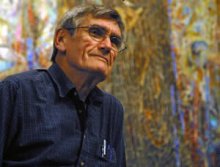Marshall Rosenberg, Ph.D.

Dr. Marshall B. Rosenberg is founder and director of educational services for The Center for Nonviolent Communication.
Growing up in an inner–city Detroit neighborhood Dr. Marshall Rosenberg was confronted daily with various forms of violence. Wanting to explore the causes of violence and what could be done to reduce violence, he chose to study clinical psychology and received his Ph.D. in Clinical Psychology from the University of Wisconsin in 1961. In 1966 he was awarded diplomat status in clinical psychology from the American Board of Examiners in Professional Psychology.
Nonviolent Communication training evolved from Dr. Rosenberg’s quest to find a way of rapidly disseminating much needed peacemaking skills. The Center for Nonviolent Communication emerged out of work he was doing with civil rights activists in the early 1960's. During this period he also mediated between rioting students and college administrators and worked to peacefully desegregate public schools in long-segregated regions.
Nonviolent communication is seen as a powerful tool for peacefully resolving differences at personal, professional, and political levels. Dr. Rosenberg has provided Nonviolent Communication training in 60 countries and works with educators, managers, mental health and health care providers, lawyers, military officers, prisoners, police and prison officials, clergy, government officials, and individual families. He is also active in war-torn areas and economically disadvantaged countries, to promote reconciliation and peaceful resolution of differences.
Worldwide reactions have been inspiring. Evaluations indicate that this training vastly strengthens the ability to connect compassionately with oneself and others, as well as to resolve differences peacefully. Reports also indicate that the benefit of the training is not only stable over time, but actually increases. Dr. Rosenberg has been able to teach individuals to give the training in their own community, work, educational, and political environments, and in their own languages, with the same positive effects.




